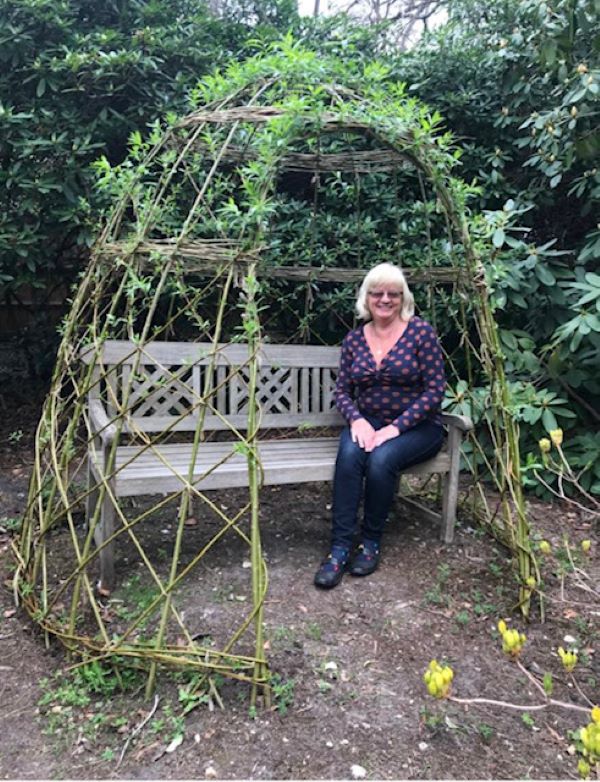
Time to face up to a new future
For the past 60 years I have travelled to Cromer, ‘Gem of the Norfolk Coast’, for a family summer holiday. I now have the dubious pleasure of being one of the oldest, whereas I was once the youngest member of the party!
Cromer 2020 did not seem a possibility in the current situation, but it was, and it was wonderful. It was made particularly special as this marked our reunion with our daughter and family, who we had not seen since February, and what a joyous occasion it was.
How can that be? I ask. Cromer always offers me the opportunity to reflect on the past year, and this seemed particularly apposite, a double bonus. Our return from Cromer always marks the passing of the seasons, we leave Surrey with long summer evenings, and return to much shorter ones, heralding Autumn.
August 2020 also marked the passing of ‘shielding’, and for many, a gradual, tentative, nervous, somewhat hesitant entrance into the ‘world outside.’ From a place, almost frozen in time, characterised by loneliness and loss of community, to one with an element of hope. I suspect that hope may be our greatest strength as we emerge.
Some things, sadly however, may never re- turn. Denman — can we really believe that this gem of the WI will, most likely, never welcome WI members again? We can only hope for a last-minute reprieve from a benefactor, currently in short supply I fear. But maybe we will find solace in our memories of a 72-year old institution, a place that has enriched our lives, provided us with skills and learning, life-long friendships and memories never to be forgotten.
We also have hopes for the future. What are yours? What do you wish to take forward from your imposed change of lifestyle? What skills have you acquired? What new friendships have you made, even if at a distance? How will you harness the inner strength that you have developed for the good of your community?
And what of our WIs? How will they fare? How will you contribute to their refashioning, their rebirth?
It is up to us all, as members of the WI, to realise a new future for our organisation, to inject new life into our institutes, to revive, to restore, to reinvent and to revolutionise. What do we value most about our WIs and how can we sustain and enhance these characteristics? It challenges us all.
I recently came across these words of Goethe that seem to have a particular resonance for us today and the path we have followed:
Talents are best nurtured in solitude, but character is best formed on the stormy billows of the world.
Does this describe what we have all just experienced? It is ‘Now the Time’, not only to re-enter the world but to engage with it and to make a difference using the talents that we have all acquired and that have sustained us through lockdown.
Modern slavery is one of the most significant injustices of our time, and a recently launched WI campaign has been thrown into the limelight during the pandemic — and close to home. Not in a distant country but in the garment district of Leicester, when a spike in COVID-19 infections was tracked to a tiny sweatshop where women worked in cramped, unsanitary conditions for £3 to £4.50 per hour.
These illegally underpaid women were found to be more efficient and cost effective than expensive state-of-the-art machinery. They believed, possibly rightly, that the government did not feel them worthy of the protection of the law.
Can we make a difference here in our own small way? Can we change our clothes buying habits, and make cheap, wear once, throw away clothes a thing of the past? During lockdown our purchasing of clothes dropped significantly. Can we embrace this practice by continuing to wear the clothes we have, rather than buying new ones? This would benefit very many women across the world as well as preserving valuable resources.
Another casualty of the COVID-19 lockdown has been the stem cell donation register which has seen a drastic reduction in new applicants, from 35,058 in March to May 2019 in contrast to only 10,661 for the same period this year. Stem cell treatment is often our last hope when all other treatments have failed. But how can we make a difference? Some of us may be too old to donate but we can publicise the campaign and encourage friends and family to register.
Both campaigns serve to prove the benefits of WI campaigns. Together we can make a difference to the lives of very many women.
As our lives return to an approximation of normal and our WIs reopen, let us greet change with confidence. Managing change is never easy but it will be our new challenge. Remember: “Change has become a constant; managing it has become an expanding discipline, the way that we embrace it defines our future.” (Queen Elizabeth II, April 30, 2020).
So, as fellow members of the WI, I call on you all to proudly embrace our future with renewed strength and determination.
Carol Gartrell, Chairman
back to News


